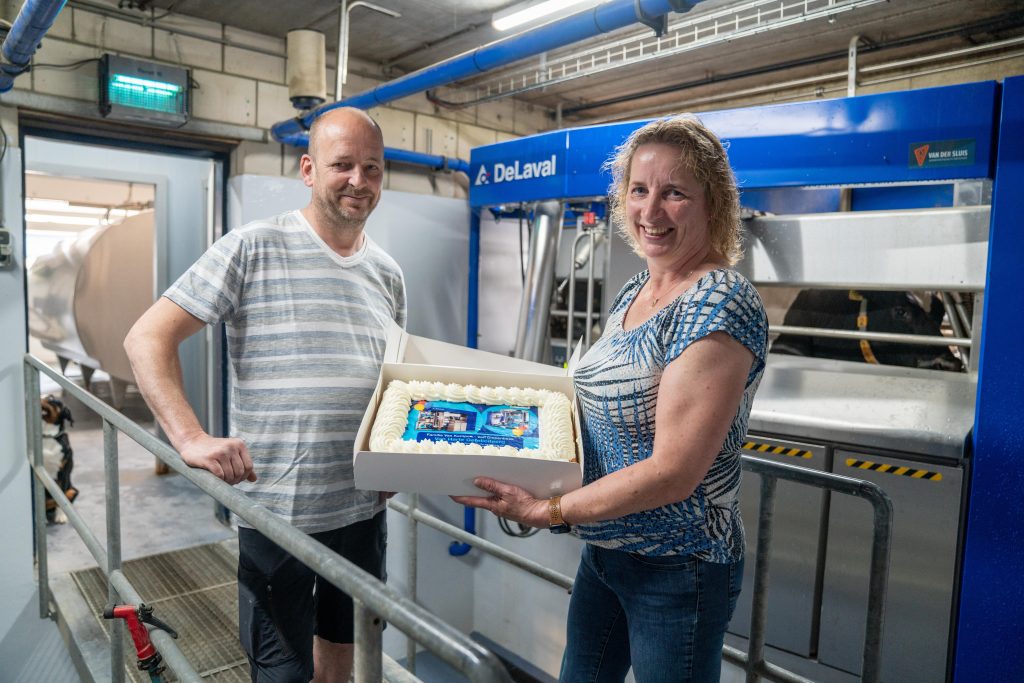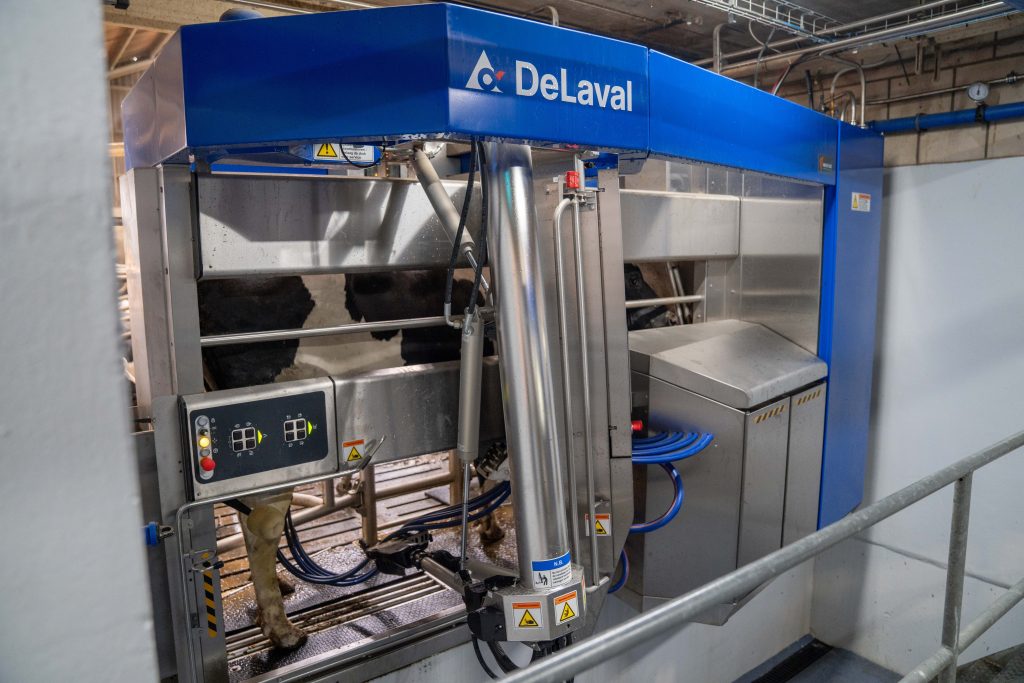Oldest operational DeLaval milking robots in the world
13 June, 2024 | News
The van Kempen family from Biddinghuizen, the Netherlands, were among the first globally to embrace DeLaval milking robots back in 2000. They recently celebrated an impressive 24 years with their original milking robots before undertaking a modernisation project: upgrading to our DeLaval VMS™ V300 range. This milestone highlights not only the longevity of the original machines but also the energy efficiency and technological advancements of the new models.

Joris and Mariska van Kempen celebrate the installation of two new DeLaval milking robots
“A lot has happened in these past 24 years!” say Joris and Mariska van Kempen during a recent launch event to commemorate the installation of two new DeLaval VMS™ V300 robots on their dairy farm. But one thing has remained constant – the enduring reliability of their original DeLaval VMS™ milking robots, which have been pumping away for them for more than two decades.
The van Kempens installed the VMS robots on their family farm back in 2000, making them one of the first globally to have our machines up and running, and the second farm in the Netherlands to do so. Today, their VMS holds the distinction of being the oldest operational DeLaval milking robot worldwide. View video Oldest still operating DeLaval VMS Classic milking robots replaced by VMS V300 robots on youtube.com
Speaking at the launch event, Fernand van Hoven, former VMS business development manager (now retired), who was jointly responsible for VMS development at DeLaval International from 1998-2018, said that in the early days, it was unclear how long such a machine could last: “We assumed 10 years at the time, but just look how long these machines have lasted. Truly a world-class performance by the product developers and mechanics!”
The van Kempen’s believe that updates were one of the keys to the longevity of the milking robots: “In all these years, we have always kept the robots up to date with updates, and always run on the latest version of software. We even added an OCC (Online Cell Counter) a few years ago to know the cell count from every milking,” Joris says.
However, they recently decided to take the plunge to change the milking robots to the DeLaval VMS™ V300 due to several reasons: “First of all, the energy consumption of newer robots is much lower. According to our calculations, we are going to save 60% energy consumption compared to the first series. The new V300 also connects much faster and I am very keen to use the latest technology,” Mariska says.
She also adds that the space inside the milking machine is now more ample for the cows: ‘The robots fit perfectly in the old space, even though the enclosure is over 40 centimetres larger.”

The new VMS V300 milking robots.
During the swap, the pair also take the opportunity to refresh and recoat the robot room.
This modernisation project marks another chapter in their journey, with the new robots poised to continue the tradition of excellence set by their predecessor. Reflecting on the new installation, they say that it has equipped them for what lies ahead: “Now with our new milking robots, we are ready for the future, in which data is also going to play a big role more and more,” Joris says.
Together with their dealer Van der Sluis Agri, the family is looking forward to another 24 years with their new milking robots!
Read press release Oldest operational DeLaval milking robots in the world on corporate.delaval.com